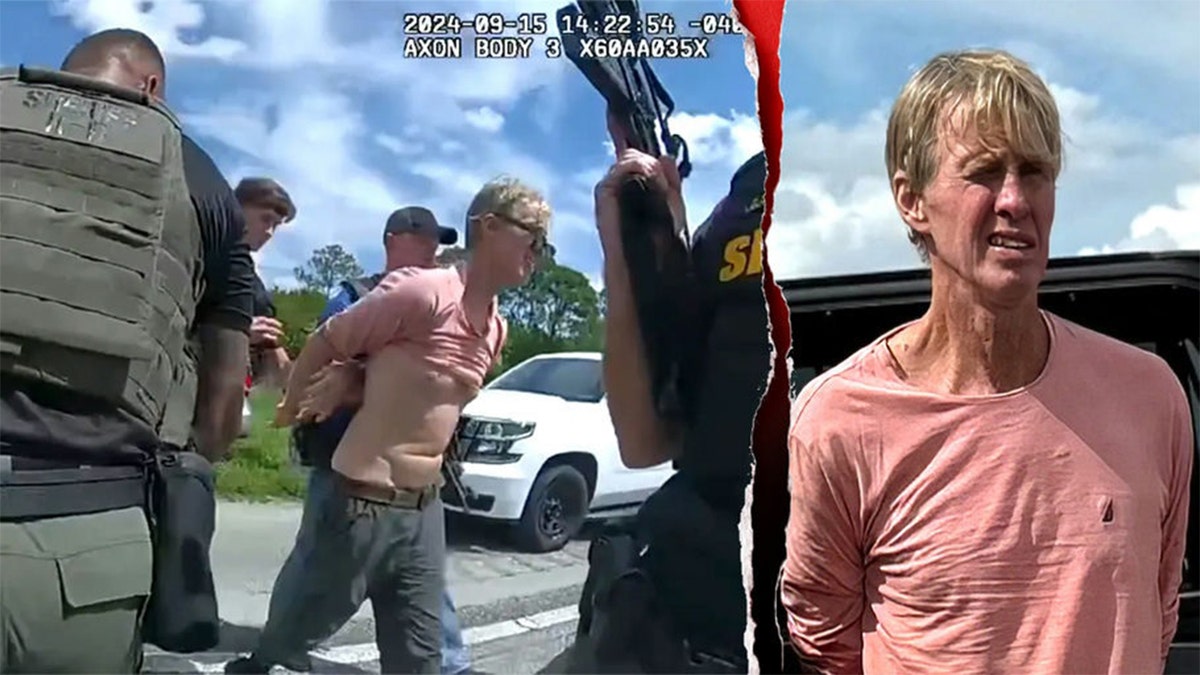
Florida Charges Would-Be Trump Assassin Amid Explosive Revelations Of Weapon Plot From Ukraine
The unfolding saga surrounding an alleged assassination attempt against former President Donald Trump has taken a dramatic new turn. Florida state prosecutors have announced charges of attempted murder and terrorism against Ryan Wesley Routh, the man already facing federal charges in an elaborate plot authorities say involved military-grade weapons sourced from abroad. This development underscores the gravity and complexity of what many now consider one of the most audacious plots against a former US president in recent memory.

Florida Attorney General James Uthmeier revealed Thursday that his office secured a warrant charging Routh with attempted first-degree murder and terrorism. These state charges follow previous federal indictments, to which Routh has pleaded not guilty, related to his allegedly meticulously planned attempt on Trump’s life at Trump International Golf Club in West Palm Beach on September 15, 2024. Governor Ron DeSantis authorized Florida law enforcement to pursue these new charges after claiming the Biden Justice Department initially obstructed state investigations—a political undercurrent that adds to the case’s controversial backdrop.
What distinguishes Routh’s plot is its alleged international dimension. According to multiple Department of Justice filings, Routh sought to obtain anti-aircraft weapons—specifically a rocket-propelled grenade (RPG) or a Stinger missile—from a Ukrainian contact accessed through encrypted messaging apps. "I need equipment so that Trump cannot get elected," Routh allegedly wrote, further requesting, "send me an RPG or Stinger and I will see what we can do...Trump is not good for Ukraine." The DOJ asserts this is direct evidence of Routh's deadly intent, extending far beyond a rifle attack.
This chilling detail sharply magnifies the threat level of the plot. Prosecutors say Routh even sent photos of Trump’s private plane, indicating a desire to shoot it down. They also revealed his effort to purchase a powerful .50 caliber rifle at a gun show, evidence of meticulous and multi-pronged planning. The plan, according to officials, culminated on that September morning when Routh allegedly hid with an illegally obtained SKS rifle on the golf course grounds. Fortunately, Secret Service agents spotted him at a distance of about 300-500 yards before he could get a clean shot; they fired upon Routh, who then fled the scene, leaving behind the weapon, burner phones, fake IDs, and a detailed escape plan.

Routh’s own words and digital footprint have proven crucial. Notably, prosecutors highlighted WhatsApp conversations demonstrating an intent both to obtain deadly weapons and to flee law enforcement post-assault, with plans to hide in Mexico. Furthermore, revelations indicate Routh commented on the July 2024 incident in Pennsylvania where Trump was targeted, replying “I wish” via encrypted chat, hinting at longstanding homicidal intent.
Legal maneuvers have intensified, with Florida now collaborating closely with the federal government to consolidate charges and evidence. Routh’s defense counters the mounting allegations by seeking to suppress key eyewitness identifications, calling law enforcement’s methods “impermissibly suggestive.” With his trial slated for September 2025, the courtroom is set to become a battleground over issues of intent, mental state, and investigative conduct.
The case’s significance transcends state lines or partisan divides: it vividly illustrates the chilling potential for political violence fueled by international connections and sophisticated weaponry. More evidence appears likely to emerge, deepening our understanding—and concern—about the motivations and means employed in assassination plots against American leaders.
As the story progresses, broader questions remain: How pervasive are such transnational plots? What safeguards are necessary in an era of easy global communication and arms access? And how will the justice system balance transparency with national security? Readers are invited to share their thoughts, concerns, and questions below as this case continues to unfold.